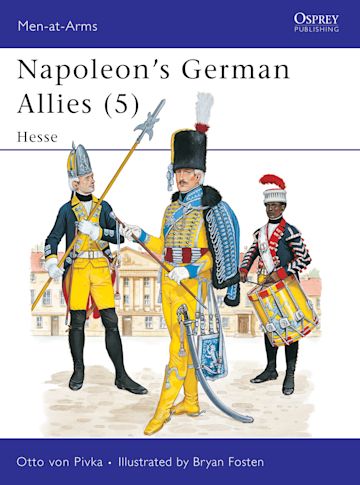
We have just received the sad news of the death, at the age of 89, of our former MAA author Digby Smith – whom Osprey readers may remember under his nom-de-plume ‘Otto von Pivka’.
Digby contributed more than a dozen Napoleonic titles back in the 1970s and ‘80s, and many more substantial books to other publishers, of which his most notable was probably a major reference book for Greenhill, ‘The Greenhill Napoleonic Wars Data Book’ (1998). The result of 20 years’ work, this lists chronologically the essential ‘potted’ facts about nearly 2,000 engagements by all the major armies in Europe and the Middle East during the Revolutionary and Napoleonic Wars, 1792-1815. (My own much-thumbed copy is still within arm’s length.)
Digby was born in Aldershot in January 1935, the son of a professional soldier, Cpl George Smith of the Royal Signals. Digby’s father was commissioned in 1939, and posted to the signals regiment of the 2nd Infantry Division (India). Captured by the Japanese in Singapore, he later survived forced labour on the infamous Burma-Siam ‘death railway’. His wife and son returned to the UK, but after the war they rejoined Maj Smith at Rawalpindi. After Indian Partition Maj Smith was seconded to the Pakistan Signal Corps, and at the age of 13 Digby received his first training in electronics at the Pakistan School of Signals.
Back in England, Digby joined the British Army as a 16-year-old ’boy soldier’, and trained as an apprentice telecommunications technician. After service in the British Army of the Rhine, he was selected in 1960 for the Mons Officer Cadet School, and the following year he was commissioned in the Royal Corps of Signals. In 1961 he married for the first time, and went on to father three children. Thereafter he spent most of his military career in Germany with BAOR, becoming an early specialist in computers and in technical logistics. He transferred to the Royal Army Ordnance Corps in 1965, and, being a qualified linguist, spent 1970-72 as an instructor at the West German Armed Forces’ Command and Staff College. During all these years he acquired and pursued a growing interest in researching German military history on the spot.
After retiring from the Army he spent a few years selling body armour to the German police during a period of terrorist activity, and in 1981 used his military experience to extend his work into the wider field of high-tech logistics, working in Germany, Saudi Arabia, and in Moscow during the Gorbachev period. Spending four years there, he was able to pursue archival and battlefield research for what later became ‘The Napoleonic Wars Data Book’. From 1995, with many published books already under his belt, he devoted his time wholly to military history, living at first in Hanau and later in East Anglia. (A complete list of his publications may be found under his name on Wikipedia; apart from Osprey and Greenhill, his publishers included Blandford, David & Charles, Windrush, Patric Stephens, Spellmount, Pen & Sword, Lorenz, and History Press; in the USA, Schiffer; in Germany,Wehr und Wissen; and in Poland, Finna ,)
He published his first Osprey book, MAA 7 ‘The Black Brunswickers’ , in 1973. After titles on ‘Napoleon’s Polish Troops (MAA 45), ‘The King’s German Legion’ (MAA 42) and ‘Spanish Armies of the Napoleonic Wars’ (MAA 51), in 1975 his MAA 44 began a five-title series on ‘Napoleon’s German Allies’ (MAAs 43, 44, 90, 106 & 122). While a number of his other MAAs were later revised and updated by other authors over the following decades, these German state-by-state titles never had to be.
While we had seldom met during the past 20 years, I shall always remember Digby for his sharp intelligence, professional reliability, excellent company and engaging sense of humour. I will gratefully recall his mastery of German from one particular day, when, in the middle of the week-long exhaustion of a Book Fair, he rescued me and swept me off to the best Indian restaurant in Frankfurt. More strikingly, I shall remember some fascinating phone-calls to me in Osprey’s then-office in Covent Garden in late October 1993. As an eye-witness in Moscow; Digby was keeping me informed about developments as Boris Yeltsin’s tanks’ shelled the parliament building.

Comments
You must be logged in to comment on this post. Click here to log in.
Submit your comment